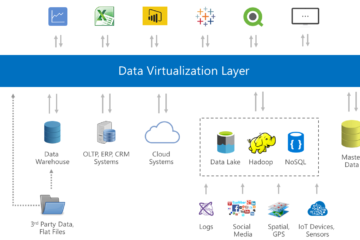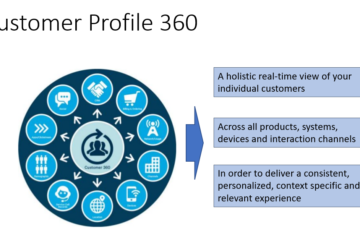Choosing Between Cloudera and Apache Hadoop Ecosystem: Use Cases and Considerations
Apache Hadoop has revolutionized big data processing by offering an open-source framework for distributed storage and processing of large datasets across clusters of computers. Cloudera, on the other hand, is a commercial vendor that provides a comprehensive data platform built on top of Apache Hadoop and related open-source projects. Understanding when to opt for Cloudera’s expensive subscription-based solutions versus leveraging the Apache Hadoop ecosystem directly involves considering various use cases and organizational requirements.

Use Cases for Cloudera Subscription
1. Enterprise Support and SLAs: Companies that require robust technical support, service level agreements (SLAs), and enterprise-grade reliability should consider Cloudera. Cloudera offers comprehensive support, including troubleshooting, performance tuning, and security updates.
Example: A large financial institution handling sensitive customer data requires 24/7 technical support and guarantees of minimal downtime, making Cloudera’s subscription valuable for maintaining operations and regulatory compliance.
2. Advanced Security and Governance: Organizations needing enhanced security features, such as fine-grained access control, data encryption, and compliance with industry regulations (e.g., GDPR, HIPAA), may prefer Cloudera’s enterprise solutions. Cloudera provides integrated security features and governance tools that simplify data protection and compliance.
Example: A healthcare provider managing electronic health records (EHRs) must adhere to stringent data privacy regulations. Cloudera’s advanced security features and audit capabilities ensure data confidentiality and compliance with healthcare laws.
3. Scalability and Performance: Businesses handling massive datasets and requiring high scalability, performance optimization, and resource management capabilities may benefit from Cloudera’s platform. Cloudera’s management tools enable efficient cluster management, workload scheduling, and resource allocation.
Example: A global e-commerce platform experiences fluctuating demand during sales events. Cloudera’s platform helps dynamically scale resources to handle peak workloads, ensuring optimal performance and customer experience.
Use Cases for Apache Hadoop Ecosystem
1. Cost-Conscious Organizations: Startups, small to medium-sized enterprises (SMEs), or organizations with budget constraints may find Apache Hadoop’s open-source nature appealing. Apache Hadoop offers core functionalities for distributed storage (HDFS) and processing (MapReduce) at no licensing cost, minimizing initial investment and ongoing expenses.
Example: A startup developing a data-driven application wants to minimize infrastructure costs while experimenting with distributed computing capabilities. Apache Hadoop provides a cost-effective solution for prototyping and early-stage development.
2. Customization and Flexibility: Companies requiring customization and flexibility to integrate with other open-source technologies, build tailored solutions, or experiment with emerging frameworks (e.g., Apache Spark, Apache Hive) may prefer the Apache Hadoop ecosystem. Open-source projects offer extensive community support, frequent updates, and opportunities for customization.
Example: A research institution exploring new algorithms for machine learning chooses Apache Hadoop to integrate with Apache Spark and develop custom data processing pipelines. The flexibility of open-source tools allows researchers to innovate and iterate rapidly.
3. Educational and Research Institutions: Academic institutions, research labs, and non-profit organizations with limited budgets but substantial data processing needs often leverage Apache Hadoop. Open-source tools provide a learning platform for students, researchers, and developers to gain hands-on experience with distributed computing and big data analytics.
Example: A university uses Apache Hadoop clusters to support research projects in fields such as genomics, environmental science, and social network analysis. The scalability and affordability of Apache Hadoop enable researchers to process and analyze large datasets efficiently.
Considerations for Decision-Making
- Budget and Cost Management: Evaluate the total cost of ownership (TCO), considering licensing fees, infrastructure costs, and ongoing maintenance expenses associated with Cloudera versus Apache Hadoop.
- Technical Expertise: Assess internal expertise and resources available for managing and optimizing a Hadoop ecosystem. Cloudera’s platform provides integrated management tools and support services, whereas Apache Hadoop requires more hands-on configuration and management.
- Regulatory and Compliance Requirements: Determine whether Cloudera’s enterprise features, such as advanced security, audit trails, and compliance certifications, are necessary to meet regulatory obligations.
- Scalability and Future Growth: Consider future scalability requirements and the need for advanced features like real-time data processing, machine learning, or streaming analytics, which Cloudera may support more comprehensively than basic Apache Hadoop deployments.
Conclusion
Choosing between Cloudera’s subscription-based solutions and the Apache Hadoop ecosystem depends on specific organizational needs, budget considerations, technical capabilities, and growth objectives. For enterprises requiring enterprise-grade support, advanced security features, and scalability with minimal management overhead, Cloudera offers significant value. In contrast, organizations with limited budgets, technical expertise, or seeking customization and flexibility may find Apache Hadoop’s open-source ecosystem a cost-effective and adaptable solution. Ultimately, the decision should align with strategic business goals, regulatory requirements, and long-term IT infrastructure plans.


